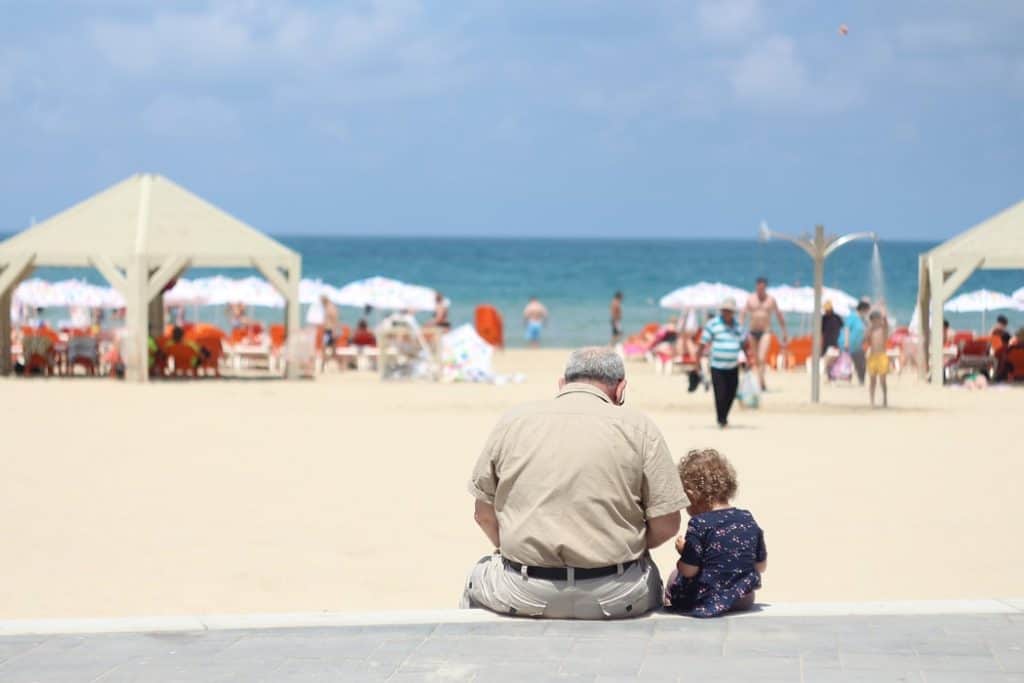Migrating with children – Top tips when relocating with your child
By Hendrika Jooste and Robyn Vogels
There is no denying that the biggest concern from parents who are immigrating is, “Will the children be happy?”
Well, the answer is easy: Children will take their lead from the parents. If parents are stressed (hard not to be!), then the children will grow anxious. In many instances, children will build up a natural defence around themselves and avoid discussing any concerns they might have. Children need to be heard; they need to express their concerns, and parents have to show patience and be good listeners.
How do you juggle all this with everything else going on during the move?
We asked Robyn Vogels and Hendrika Jooste, authors of Your DIY move guide to Australia, how parents can navigate their relocation and come out on the other side with the family intact.
Top tips when relocating with your child
1. Choose a time to talk
Often, there may be a difference of opinion when the parents discuss an international assignment or migration. Try to have these conversations when the children are in bed or out of the house. If the parents are having a debate over, for example, a potential job offer, the children may grow concerned that this “immigration idea” is not going to be a positive experience. The children don’t necessarily understand that the debate is about a job that might not even eventuate. All they hear is raised tones of voice and concerned sighs which make them feel anxious.
2. Respect different priorities
While the chaos of the move surrounds you, remember the children will have different priorities, ideas and thoughts about the move. A teddy bear being scared inside a dark box will seem so insignificant to a busy parent, but it is time to stop for a minute and reassure the child. Parents can resolve most children issues quite easily. This will eliminate many minor issues building up in the child’s thoughts. Remember, it is normal human behaviour to fight or take flight when we are scared – for children too. If you reduce their stress, you are less likely to have a meltdown when least expected. Also, the children will continue to be open about their concerns and you will have less displaced anger exploding at inconvenient moments.
3. Be an active listener
We as parents are told this all the time, and even more so during an international move! Being an active listener means you will gain early insight into how the child is feeling. Regardless of the child’s age, always listen. Parents need to be okay with saying, “I don’t have the answer yet, but I will find out.” It’s better to take time to refine your answer – especially with teenagers – than to give an answer that makes the child feel like their question was not important to you.
4. Remember family goals, rituals and values
A relocation will test your family bonds at the highest level. Hence, it’s crucial to involve each family member in the future goals of your move. These goals might include schooling, lifestyle and even new holiday destinations.
Family rituals are part of your routine, and a routine with boundaries is a safe place for children. Consider how you will be keeping in touch with family and friends back home. At present, it could be that you have Sunday lunch with grandparents. How can this be transformed into Sunday Skype sessions? How could time zones influence this?
Family values might not be a subject spoken out loud. Think ahead a little: When you are in the new country and shortlisting schools, what values will you look for in a school? These values should align with your family values, so evaluate and, if necessary, write them down, make them clear to the entire family.
Your values, rituals and goals bind you as a family and provide boundaries for children. During a stressful transition, they can be a guiding light and a lifeline for your family.
5. Manage expectations
Whilst you have done a great job at making sure the children are not caught up in the stress and anxiety of the move, you also need to manage their expectations. Honesty and keeping to the facts with the information that you share are imperative. Explain that it is not always going to be an easy road ahead; there is much to do and you will need their support and understanding.
Remember, the first few weeks of home finding results in many dashboard hours; there is jet lag and there might even be new foods or different toothpaste! Discuss with the children that important decisions need to be made and patience will be tested. This way, it is not a nasty surprise when everyone gets tired and grumpy. Then you as the parent can turn around in the hired car and say, “Hey, remember how I said this might happen and that we all need to be patient? So, let’s all settle down and get the job done.”
Robyn explains that “Children don’t have the life experiences that we as adults have; they also do not plan as far ahead as adults. A child usually doesn’t think about the awkwardness of the first day of school; only the parents worry about this. The child has not thought that far down the track yet! Take a lesson from the children during your move and take one day at a time.”
About the authors
Hendrika Jooste and Robyn Vogels are the authors of the Amazon bestseller Your DIY move guide to Australia. They have published both a South African specific edition and a global edition.
As mothers, wives and successful businesswomen, the duo combined their (very!) different global experiences to provide a comprehensive resource for people to move, integrate and flourish.
To find out more, click here.
Share on
Latest articles



















